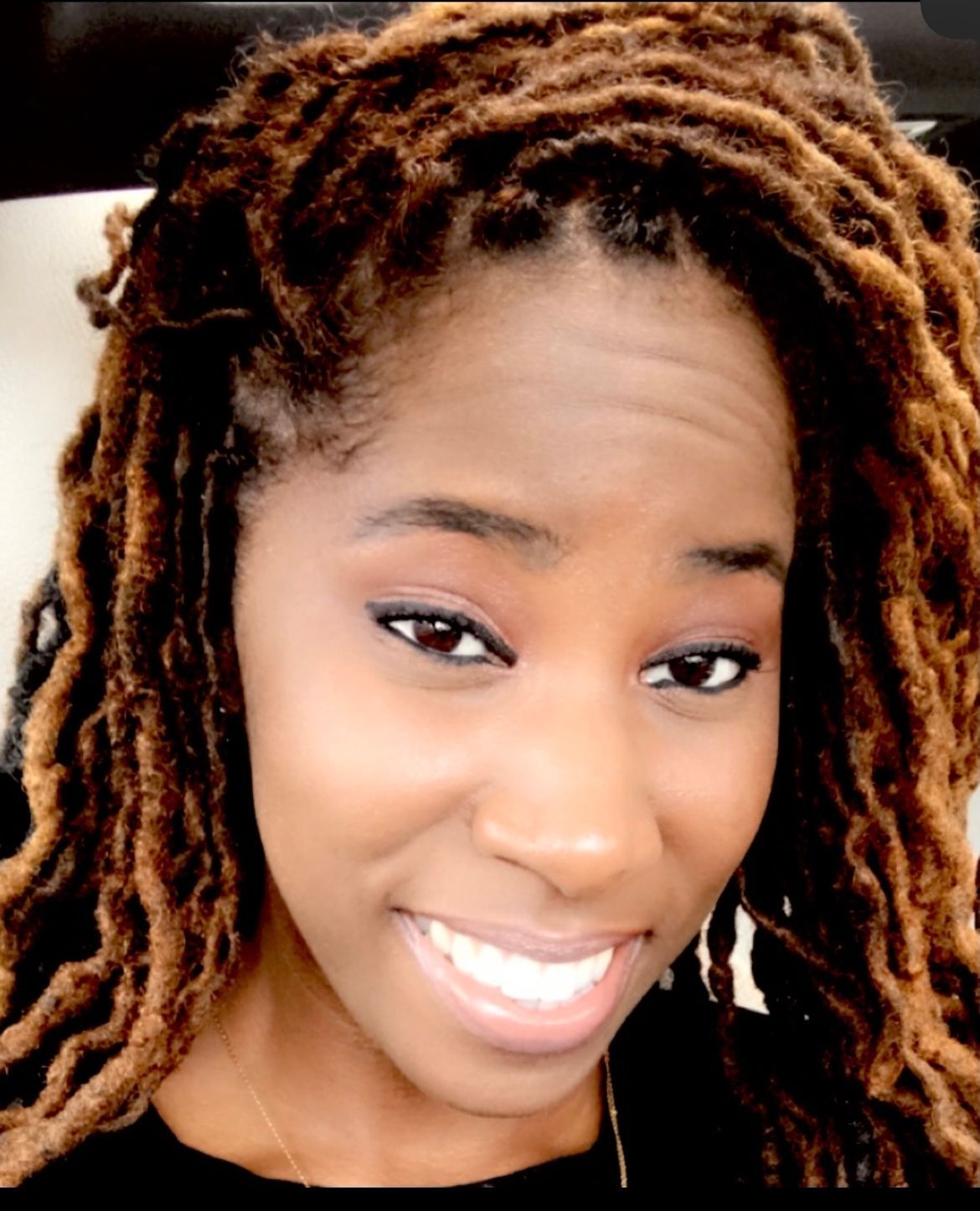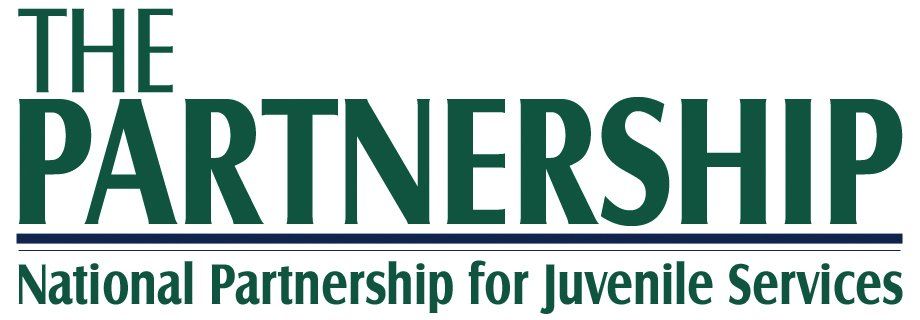Read Our Employee Interview
Juvenile Justice Spotlight

April Finley
Embedded Consultant
Agency: Consulting for the South Carolina Department of Juvenile Justice
Office Location: Columbia, South Carolina
1. What led you into the Juvenile Justice field?
“My transition into the juvenile justice field was quite organic. I like to say that 'God’s Plan is often times different from Our Plan'. After graduating college and working in the field of Kinesiology for a very short period, I realized that that particular career path wasn’t as fulfilling as I had expected; it didn’t feel like it was my calling. I ventured in a completely different direction and became a Correctional Officer at a Level 3 Prison. Along this career path, I reflected further and realized that I wanted to figure out how I could intersect young people before they transitioned into the adult prison system. Soon after, I began my career as a Youth Development Representative for the Department of Youth Rehabilitation Services in Washington, D.C., where I worked as a direct care staff (specialized in providing services to the female population). I wore many hats throughout my tenure with the agency, however the most pivotal, influential, and transformational period started on the housing units with our youth. Throughout this experience, I strived to positively impact the lives of the youth that entered our doors while navigating through the continuous cycle of what my mentor Dr. Japheth Claude refers to as 'Storming, Norming, and Performing'. I realized that my passion was meeting the youth where they were, training and coaching direct care staff and management teams, empowering our youth and staff, so that they could become better versions of themselves, achieve their goals, while realizing their value and their full potential. God’s Plan led me to the field of juvenile justice” and for that, I am grateful."
2. What motivates you to stay in this field and why?
“I feel that the juvenile justice field is my calling. I appreciate being positioned where I can inspire youth, empower, and educate staff that are brand new to the field and inspire, motivate, and learn from veterans who have been in the field. Being an anchor, support system, and a 'bright light' in a sometimes-dark space for our youth, families, direct care staff, management teams, and my colleagues is what motivates me to stay in the field."
3. What part of your job energizes you?
“What energizes me in the field of juvenile justice is being able to relate, empathize, and see things from many different lenses (from the youth’s lens, staff lens, management lens, facility leadership lens etc.). Surrounding myself with Change Agents: people who are passionate about making a difference and true juvenile justice reform energizes me!"
4. What topic would you love to get more training on to help you in your job or with higher career aspirations?
“I would love to get more training in topics geared towards Leadership Development, Life Coaching, Juvenile Justice Reform (i.e., Evidence-Based Decision Making, Youth in Custody, Ending Isolation in Youth Facilities), Public Administration, Trauma-Informed Care, to name a few. Training in these areas would assist with providing at-risk youth with a high level of treatment services as well as be a resource to front-line staff, middle-management, facility leadership, and other community stake holders. I want to be able to inspire, motivate, and empower people; especially those who work within detention facilities across the country."
5. Who were your mentor(s) in the field? What is something that they taught you that you've carried with you throughout your career?
“Dr. Japheth Claude is my mentor. Three things stand out in my mind:
- When I shared my desire to transition into a different role within the detention facility approximately eight years ago, he asked, 'Well Ms. Finley, Have you prepared a successor?', meaning who is going to carry on the work to make sure the girls are still taken care of. 'Who is going to carry the torch on the housing units?' This was a transformational period for me as I hadn’t really thought about the impact, significance, and importance of really pouring into others so that they are just as effective, so that the staff win and our youth win. The search began! I became even more intentional with identifying champions, building on individual strengths, coaching, training, and pouring into those around me and today I ask myself that question when it’s time to move on and encourage others to ask themselves: Who Will Be Your Successor?
- Not allowing the 'No’s or the ‘Not Now’s' to deter me. When you don’t get the opportunity, when you feel overlooked, when you don’t feel valued, when doors have closed in your face, it’s easy to get frustrated. We are human; frustration is normal. It’s okay to feel the emotion; it’s not okay to stay there. It’s still about giving 150% and having those doors open when it’s the right time.
- He would always say, ‘True success is never accomplished alone.’ It takes a team; Together Everyone Achieves More. Lastly, empower your staff, identify strengths that they don’t see in themselves, and assist staff with cultivating their skillsets."
6. If you could give advice to someone starting out in the field, what would it be?
“A snapshot of advice I would give for someone starting out in the field would be: Be open-minded. Be a sponge. Bring your creativity. Educate Yourself on Policies and Procedures. Build healthy, appropriate rapport with the youth. It’s okay to not know the answer to everything, ask questions. Structure and Consistency is key. With so many individuals coming in that are new to the field of juvenile justice and detention, these strategies are important to help staff to learn and grow."
7. What has been one of the most memorable experiences for you since working in JJ?
"As a Treatment Manager, Floor Manager, and Shift Commander, I was always caught up in the day-to-day work (i.e., staff meetings, security rounds, responding to assistance calls, mediations, supervisions, programming, movement, youth progress meetings and the list went on and on). Journey Core Support Team (youth, unit staff, behavioral health staff, and JJICs) that I worked alongside came together and pulled off a Surprise Birthday Party right underneath my nose. I must say that I was highly impressed because my girls and the staff got away with keeping it a secret. Along with my favorite cake, favorite foods, balloons, and gifts, Journey youth wrote a thoughtful letter, made a beautiful birthday card, and presented it at the party. Tears were flowing but they were all out of joy. We that do this work often forget to celebrate and pour into ourselves; it was a special feeling to have my village celebrate me."
8. If you could share a valuable life lesson with youth to help them avoid becoming involved in the juvenile justice system, what would it be?
“Be open to receiving help/guidance from well-meaning people in their lives, i.e., teachers, coaches, other mentors. It’s okay to ask for help; it’s okay to be the person that wants to do the right thing; your mistakes don’t define you as a person and you too can have a fresh start. Strive to achieve your goals and if you fall down along the way; get up, dust yourself off and keep going!"
9. For the kids you serve, is there go-to advice you give that provides wisdom to a youth currently involved in the JJ system? What would it be?
“You are the author of your own story. Whatever goals and aspirations that you have for yourself, you must first believe! Write it down and put it in a place where you can see it and reflect on it each and every day. I would also encourage youth to continue to build their rapport with their Credible Messengers and Mentors while in our care so that the trust factor and support is solid once they are released out of our custody. Lastly, I would provide sticky notes and have the youth write down three affirmations and post them on the mirrors or desk in their rooms and encourage the youth to repeat it and believe it before they start their day and before they close their eyes at night. This was a practice that I would encourage the youth to utilize once they transition back into their communities to remind them to never forget their value and their worth."
10. What do you enjoy doing when you're not at work?
"I enjoy traveling, hiking, coffee shops, visiting record shops to casually peruse through cassette tapes and vinyl records, try different cuisines, as well as attend music and food festivals. Lastly, I enjoy working out and spending time with friends and family."
